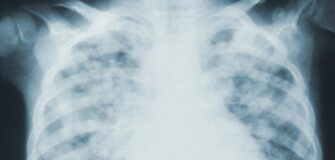The Centenary Institute and the University of Sydney, together with collaborators, have been awarded an AU$19 million contract from the National Institute of Allergy and Infectious Diseases, part of the US National Institutes of Health (NIH), to develop the next generation of tuberculosis (TB) vaccines.
TB, a disease that primarily affects the lungs, is caused by infection from the bacteria Mycobacterium tuberculosis. Approximately 1.5 million people die from TB each year. It is a leading cause of death globally.
The NIH contract, Advancing Vaccine Adjuvant Research for TB (AVAR-T) will fund, over five years, the research and development of new TB vaccines, to the point that they can then be tested in human clinical trials.
Professor Warwick Britton AO, Head of the Centenary Institute’s Tuberculosis Research Program and lead investigator on the project, said that a more effective TB vaccine was urgently needed.
“There’s only one licensed TB vaccine – the Bacille Calmette-Guérin (BCG) vaccine which is over a hundred years old. BCG is effective in reducing the risk of disease for infants but performs poorly in preventing infection in older children and adults,” said Professor Britton.
“A new and improved TB vaccine with increased efficacy rates is required to help decrease the global TB burden and to save lives around the world,” he said.
Professor Angelo Izzo, a principal investigator on the project at the Centenary Institute, said that a unique aspect of the research will be the head-to-head comparison of critical components – antigens and adjuvants – necessary to create a successful new TB vaccine.
This will see three specific antigens (proteins from the tuberculosis bacterium) tested, together with up to eight separate adjuvants (molecules which are added to vaccines to help create a stronger and more potent immune response).
“The optimal antigen and adjuvant combination will be used as the basis for the new advanced TB vaccine,” said Professor Izzo.
Professor Jamie Triccas from the University of Sydney Institute for Infectious Diseases, Faculty of Medicine and Health, also a principal investigator on the project said the scope of the research project is highly significant.
“Our research and development will take place over five years with investigation and analysis of TB models occurring in Sydney and three other leading research centres located in Copenhagen, Oregon and New Orleans,” said Professor Triccas.
“The successful development of a new vaccine could be an absolute game-changer in terms of reducing the spread of TB and reducing deaths globally.”
Work on the vaccine project is due to begin imminently.





















